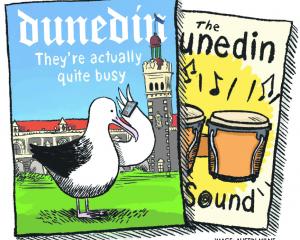
The New Zealand dollar fell further off its 30-year high of US88.3c on Monday, trading at US85.47 yesterday, partially on the back of lower global commodity prices.
Backdropping global volatility this week, the Chinese Government made a rare announcement yesterday through embassies, including in Wellington, saying the West had nothing to fear from China's rapid economic growth and investment.
The Chinese embassy's political counsellor, Cheng Lei, said the Chinese Government encouraged Chinese companies to invest globally and said there was a great deal of confidence in the New Zealand system and people, the New Zealand Herald reported.
Despite the 11th-hour US deal struck earlier this week allowing the US to raise its debt ceiling cap beyond $US14.3 trillion ($NZ16.3 trillion), investors remained jittery and initially sought the historical safe haven of bullion.
Spot gold prices rose in New York to $US1675 an ounce, its second record in two days, as investors shed billions of dollars of company value, selling off stocks around the world.
Following a seven-day losing streak in New York by the Standard and Poor's 500 index, stocks closed slightly up yesterday but volatility remained keen.
The blue chip Dow Jones index rose 0.25%, the broader S&P 500 climbed 0.5% while the tech-heavy Nasdaq Composite rallied 0.89%.
On reopening yesterday, most of the major Asian markets regained some strength from the previous day's more than 2% losses, and while the Australian market was trading slightly down, the New Zealand exchange was up by about 0.22% by mid-afternoon.
Craigs Investment Partners broker Peter McIntyre said while US stocks were retracing some losses, European stock markets "fell sharply", with the banking sector under pressure, with the French, German and London exchanges all down between 1.9% and 2.3%.
"[However,] the rapid sell-off has dissipated since the Dow Jones bucked its [seven-day] losing streak," Mr McIntyre said.
Forsyth Barr broker Suzanne Kinnaird said recent poor US data on consumer spending and factory activity underlined the economy's precarious position after a weak first half of the year, compounding with the "festering European debt crisis", was likely to keep buyers cautious.
Mr McIntyre noted there was still concern among investors that the US may yet face a credit downgrade by international ratings agencies and higher interest rates for all sectors of the ailing US economy.












